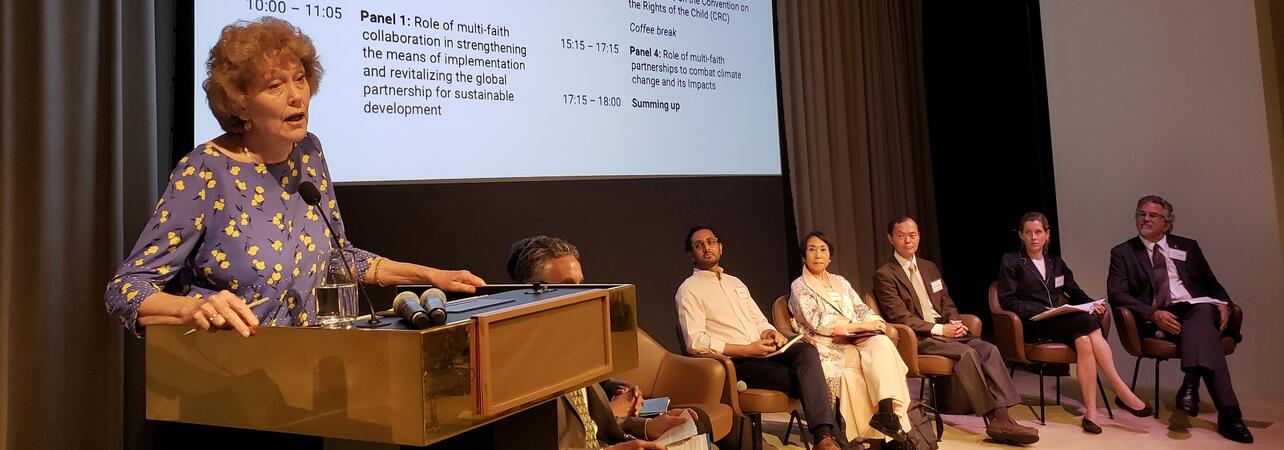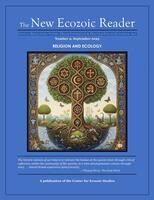 New Ecozoic Reader Special Issue
New Ecozoic Reader Special Issue
The September 2025 issue (no. 9) of The New Ecozoic Reader is a special intergenerational retrospective on the field of religion and ecology. Edited by Sam C. King and Sam Mickey, with a foreword by Iyad Abumoghli of UNEP Faith for Earth Coalition, and with an Introduction by Mary Evelyn Tucker and John Grim.
Daedalus

The fall 2001 issue of the journal Daedalus focuses on interdisciplinary issues regarding religion and ecology that specifically related to issues raised by global climate change. This issue brought together for the first time diverse perspectives from the world’s religious traditions regarding attitudes toward nature with reflections from the fields of science, public policy, and ethics. For more information about the contents of this issue, please click on the title. For additional information on the journal, visit Daedalus page at the Academy of Arts and Sciences website.
Worldviews: Global Religions, Culture, and Ecology
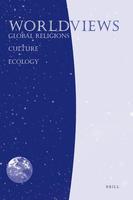 Worldviews: Global Religions, Culture, and Ecology has as its focus the relationships between religion, culture and ecology world-wide. Articles discuss major world religious traditions, such as Islam, Buddhism or Christianity; the traditions of indigenous peoples; new religious movements; and philosophical belief systems, such as pantheism, nature spiritualities, and other religious and cultural worldviews in relation to the cultural and ecological systems. Focusing on a range of disciplinary areas including Anthropology, Environmental Studies, Geography, Philosophy, Religious Studies, Sociology and Theology, the journal also presents special issues that center around one theme.
Worldviews: Global Religions, Culture, and Ecology has as its focus the relationships between religion, culture and ecology world-wide. Articles discuss major world religious traditions, such as Islam, Buddhism or Christianity; the traditions of indigenous peoples; new religious movements; and philosophical belief systems, such as pantheism, nature spiritualities, and other religious and cultural worldviews in relation to the cultural and ecological systems. Focusing on a range of disciplinary areas including Anthropology, Environmental Studies, Geography, Philosophy, Religious Studies, Sociology and Theology, the journal also presents special issues that center around one theme.
Journal for the Study of Religion, Nature, and Culture
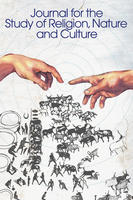 From 2007, The Journal for the Study of Religion, Nature and Culture is the new title for Ecotheology which for more than a decade has been the leading forum for constructive and normative studies on the relationship between religion and ecology. The journal's expanded goals are to explore the relationships among human beings, their diverse religions, and the earth’s living systems and to explore what constitutes an ethically appropriate relationship between our own species and the natural worlds we inhabit. This journal is the official journal of the International Society for the Study of Religion, Nature, and Culture.
From 2007, The Journal for the Study of Religion, Nature and Culture is the new title for Ecotheology which for more than a decade has been the leading forum for constructive and normative studies on the relationship between religion and ecology. The journal's expanded goals are to explore the relationships among human beings, their diverse religions, and the earth’s living systems and to explore what constitutes an ethically appropriate relationship between our own species and the natural worlds we inhabit. This journal is the official journal of the International Society for the Study of Religion, Nature, and Culture.
Reflections: A Journal of Yale Divinity School
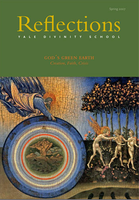 The Spring 2007 issue of this journal was entitled “God's Green Earth: Creation, Faith, and Crisis.” In the lead article for this issue, Mary Evelyn Tucker and John Grim conclude by saying, “A many-faceted alliance of religion and ecology along with a new global ethics is awakening around the planet…This is a new moment for the world's religions, and they have a vital role to play in the emergence of a more comprehensive environmental ethics. The urgency cannot be underestimated. Indeed, the flourishing of the Earth community may depend on it.” Sobering, yet hopeful, words. Like exhortations resonate throughout this issue by ethicist Larry Rasmussen, to evangelical thinker Richard Cizik's ruminations in a “New Moral Awakening,” to the appeal for grassroots activism by Sally Bingham in “Power, Light and Hope,” we are told that planet Earth is in danger of spinning out of control—but that people of faith, uniquely positioned to bring together theory and practice, can help right the planet. Wangari Maathai, the 2004 Nobel Peace Prize laureate, reminds us that the planet belongs to all, and she poignantly recounts her grassroots Green Belt Movement's successful campaign to plant millions of trees in deforested sections of Africa. And Gus Speth, dean of the Yale School of Forestry and Environmental Studies, speaks of “ethical duties” to rescue the ecosystem from ravages of the world economy, concluding with the affirmation, “We can save what is left.”
The Spring 2007 issue of this journal was entitled “God's Green Earth: Creation, Faith, and Crisis.” In the lead article for this issue, Mary Evelyn Tucker and John Grim conclude by saying, “A many-faceted alliance of religion and ecology along with a new global ethics is awakening around the planet…This is a new moment for the world's religions, and they have a vital role to play in the emergence of a more comprehensive environmental ethics. The urgency cannot be underestimated. Indeed, the flourishing of the Earth community may depend on it.” Sobering, yet hopeful, words. Like exhortations resonate throughout this issue by ethicist Larry Rasmussen, to evangelical thinker Richard Cizik's ruminations in a “New Moral Awakening,” to the appeal for grassroots activism by Sally Bingham in “Power, Light and Hope,” we are told that planet Earth is in danger of spinning out of control—but that people of faith, uniquely positioned to bring together theory and practice, can help right the planet. Wangari Maathai, the 2004 Nobel Peace Prize laureate, reminds us that the planet belongs to all, and she poignantly recounts her grassroots Green Belt Movement's successful campaign to plant millions of trees in deforested sections of Africa. And Gus Speth, dean of the Yale School of Forestry and Environmental Studies, speaks of “ethical duties” to rescue the ecosystem from ravages of the world economy, concluding with the affirmation, “We can save what is left.”
Religious Studies News
This article entitled, “Religions of the World and Ecology: Discovering Common Ground” originally appeared in the May 1999 issue of Religious Studies News.
Header photo: Mary Evelyn Tucker speaks at the Kofi Annan Briefings, July 2019, during the session “The Role of Multi-Faith Partnerships to Combat Climate Change and its Impacts”; Courtesy of Interfaith Rainforest Initiative

